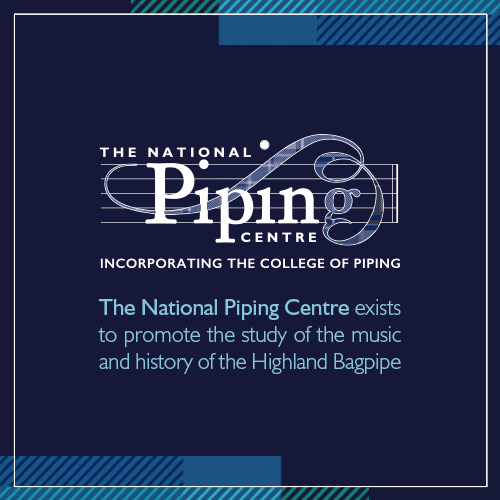
GREY’S NOTES
by Michael Grey.
January 2023.
It has to be more than coincidence that this past weekend should see a presentation and a petition collide. At this past weekend’s conference of leaders from the Alliance of North American Pipe Band Associations I led a talk on possible ways to address the withering of piping and drumming in North America. At almost the same time a petition was kicked-off: A call to action – to pipers and drummers everywhere – to stand-up and send the British Broadcasting Corporation a clear message: piping matters a lot and, by extension, so do the weekly BBC broadcasts of Pipeline and BBC Radio nan Gàidheal’s, Crunluath.
The last few days have already seen many passionate words written about the importance of these broadcasts to the piping world. My first exposure to BBC’s piping broadcast was through bootleg cassette tapes – seriously. Barry Ewen (the well-kent Ontario-based, Glasgow-born piper and, for a time, a fellow-member of the 78th Frasers) would pass around the band tapes his mum faithfully recorded every week direct from her East Kilbride wireless. Quality. It was by this means that we had any idea of what was happening in the piping and drumming world, you know, who was playing well and who was playing like a rusty saw.
I don’t think it takes any earth-shattering intelligence to know that the bagpipe – and I include the pipe band in simply saying, “bagpipe” – is one of Scotland’s most important cultural symbols: point to a picture of a Great Highland Bagpipe to almost anyone on the planet. Respondents will likely be unanimous: “that belongs to Scotland”.

Every country, people, region has symbols. The Rockies, maple syrup and the Mounties. Bingo. You got it: those mean Canada. And the government of Canada markets the hell out of these – and other – symbols. Why? It’s in our national interest. Among other good reasons there is a bottom line to mindful and considered stewardship of cultural symbols. Today’s fascinating fact, the country at the top of the league table for “long-haul” visitors to Canada comes from the United Kingdom. Its visitors like these that contribute to 6.3% of the country’s Gross Domestic Product. That’s not chump change.
Tourist spending in Scotland generated £12 billion of economic activity in Scotland in 2019 and represents about 5% of Scotland’s GDP. And so, knowing how important tourism is to Scotland I wonder what the passionate advocates at Scotland’s national tourist organization, Visit Scotland would make of the BBC’s plan to pull the plug on cultural broadcast gems – that represents one of Scotland’s greatest cultural symbols. I’d wager a guess that any savings realised would be the equivalent of an accounting rounding error on a mainline sports or news broadcast budget.
In Canada, where in 1901 we were the home to 90,000 Gaelic speakers, the bagpipe is something of regional cultural symbol. In areas where Scots made their way so, too, did the bagpipe. But – and to my weekend talk at the ANAPBA conference – we have let slide our duty to propagate the music, relying, to some extent, on the echoes of waning Scottish immigration. In a fast-changing world where demographics, immigration and technology is transforming everything we need to adapt. We also need to protect what’s important.
The American author, Roshani Chokshi, wrote, “Nothing but a symbol? People die for symbols. People have hope because of symbols. They’re not just lines. They’re histories, cultures, traditions, given shape.” In fact, we only have to look to history of not-long-ago to see a catalyst that helped cement the bagpipe as something both revered and iconic: the wartime role of the piper as a strategic battlefield strength in piping soldiers “over the top” in WWI.
Axing vital broadcast markers of an important and hallowed national cultural symbol – only to be replaced with something “streamlined” and cheaper – cannot stand. As we’ve found in North America, we need to be vigilant in protecting and nurturing the bagpipe. Speak up. Rise up. At the minimum, please consider signing the petition initiated by Dr Simon McKerrell. The petition can be found here.
And for those interested in having a look at the slides from my ANAPBA talk you can download them here.


